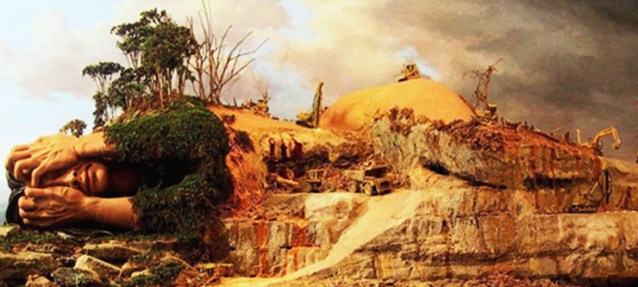I was born on a small West Virginia dairy farm, and when I was 10 years old, we relocated to the third floor of an apartment building near Washington, D.C. The first time I opened my mouth to speak to my new city kid friends they said, “Are you a hillbilly?” Not knowing what a hillbilly was, I replied, “No, I’m not a hillbilly, I’m from West Virginia.”
In 1964 when President Lyndon B. Johnson launched the War on Poverty, I was 15 years old. By then I was well acquainted with the raggedy, dirty little kid in the mud puddle stereotype of hillbillies. I didn’t recognize myself or my cousins in that picture, but I couldn’t figure out how I fit into the northern Virginia landscape either.
In 1975, when I was visiting a former college roommate in the Appalachian Mountain town of Norton, Virginia, we went to see a new play, Red Fox/Second Hangin’, written and performed in a small community center by a young theater company calling itself Roadside. I was mesmerized. I had never seen my rural people authentically portrayed on the public stage – or anywhere else in mainstream culture for that matter. Set in the 1890’s, the play told the story of the arrival in central Appalachia of King Coal. Less than a decade into coal’s reign, the Appalachian Mountains would start to become known as a rich land with poor people.
Roadside Theater was, and is, one part of Appalshop. The Appalachian Film Workshop began as a War on Poverty Program. As reporters from big city newspapers and national magazines swarmed into Appalachia to cover the War, residents opened Life Magazine and saw themselves, their friends, and their neighbors depicted as shack-dwelling, forlorn looking people.
It was in this shameful environment that high school students walked in off the streets of Whitesburg, KY in 1969 to participate in a "War on Poverty" training program promising them television and film careers. The only trouble was there was no film or television industry in the mountains. The kids liked the equipment, however, and started taking pictures of what was around them -- a hog butchering, the birth of twins assisted by a mid-wife, foot washing at the Old Regular Baptist Church.
In these films they made a discovery: they could make their own pictures, in their own image, and these pictures and the stories they told held more substance and truth than those in the national media. It was a profoundly empowering experience.
In 1971 the government discontinued its media training program, but the kids kept the equipment, and began raising money to continue the work on their own. They founded Appalshop.
Young people with Appalachian roots heard about Appalshop and came to Whitesburg to see what was going on. Several thought, if we can use film and video to tell our stories, why not also use theater? That’s how Roadside Theater began.
Today, 125 years after his arrival, global King Coal has departed, leaving behind no plan or stable infrastructure for central Appalachia’s future economic development. Poverty rates in eastern Kentucky counties are between two and three times the national average.
In some ways central Appalachia has been a bellwether for U.S., and now world, social, political, and economic forces. In 2010, the richest ten percent of U.S. households owned seventy percent of the entire country’s wealth. And, according to Oxfam, the richest 85 people in the world currently own more wealth than the poorest 3.5 billion people who make up the poorest half of the world’s population.
Central Appalachia’s people have witnessed the vast environmental destruction perpetuated by trans-national absentee energy corporations; the ways race and class are used as wedges to separate people from their common interests; and how cultural stereotypes corrode a people’s self-confidence and creativity. These themes are abiding undercurrents in Roadside plays and Appalshop media, and they provide a subtext we share with many of our community partners across the country.
Despite more than a century of economic and environmental trouble, Appalachia’s people have maintained their cultural sovereignty. They are the tellers of their own stories and the singers of their own songs. And it has been Appalshop and Roadside Theater’s role to amplify these voices.
Donna Porterfield is Roadside's Managing Director. She can be reached at [email protected].
Let us know what you think in the comments below.
The mural in the cover photo is called "The Agony of Gaia." It was created by Jeff Chapman-Crane of Eolia, Kentucky.
